
The garden pansy is a type of polychromatic large-flowered hybrid plant cultivated as a garden flower. It is derived by hybridization from several species in the section Melanium of the genus Viola, particularly V. tricolor, a wildflower of Europe and western Asia known as heartsease. It is sometimes known as V. tricolor var. hortensis, but this scientific name is suspect. While V. tricolor var. hortensisGroenland & Rümpler is a synonym of Viola × wittrockiana, V. tricolor var. hortensisDC. refers to a horticultural variety of wild pansy that had been illustrated in Flora Danica in 1777 before the existence of Viola × wittrockiana.

Undine is a fairytale novella by Friedrich de la Motte Fouqué in which Undine, a water spirit, marries a knight named Huldbrand in order to gain a soul. Published in 1811, it is an early German romance, which has been translated into English and other languages.

Viola tricolor is a common European wild flower, growing as an annual or short-lived perennial. The species is also known as wild pansy, Johnny Jump up, heartsease, heart's ease, heart's delight, tickle-my-fancy, Jack-jump-up-and-kiss-me, come-and-cuddle-me, three faces in a hood, love-in-idleness, and pink of my john.

Olga Neuwirth is an Austrian contemporary classical composer, visual artist and author. She is famed especially for her operas and music theater works, many of which have treated sociopolitical themes. She has emphasized an open-ended, interdisciplinary approach in her work, collaborating frequently with Elfriede Jelinek, exploiting live electronics, and incorporating video. In her opera Lost Highway, she adapted David Lynch's surrealist film with the same name. She has also written music for historic and contemporary films. Luigi Nono has inspired her both musically and politically.

Baroness Gertrud von Le Fort was a German writer.

Leonhard Frank was a German expressionist writer. He studied painting and graphic art in Munich, and gained acclaim with his first novel The Robber Band. When a Berlin journalist celebrated in a famous café about news of the loss of the ship RMS Lusitania, torpedoed by a German submarine, Frank was upset – and slapped the man in his face. That is why he went into exile in Switzerland (1915–18), where he wrote a series of pacifist short-stories published under the title Man is Good. He returned to Germany, but after the Nazis gained power in 1933 Frank had to emigrate a second time. He lived in Switzerland again, moved to London, then Paris and finally fled under adventurous conditions to the United States in 1940, returning to Munich in 1950. His best-known novels were In the Last Coach and Carl and Anna, which he dramatized in 1929. In 1947 MGM made a movie titled Desire Me out of this story.
The Woman and the Stranger is a 1985 East German film directed by Rainer Simon. It is based on Leonhard Frank's novella "Karl und Anna" and tells the story of two friends in a POW camp during World War I. One of them escapes and forms a relationship with the other man's wife. After the war her husband returns. The film was entered into the 35th Berlin International Film Festival, where it won the Golden Bear.

Le Colonel Chabert is an 1832 novella by French novelist and playwright Honoré de Balzac (1799–1850). It is included in his series of novels known as La Comédie humaine, which depicts and parodies French society in the period of the Restoration (1815–1830) and the July Monarchy (1830–1848). This novella, originally published in Le Constitutionnel, was adapted for six different motion pictures, including two silent films.
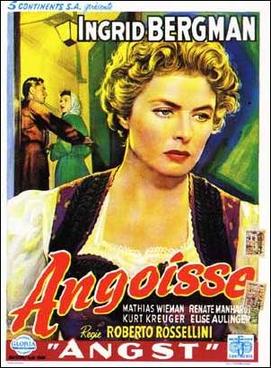
Fear is a 1954 German-Italian drama film directed by Roberto Rossellini and starring his wife Ingrid Bergman. It is loosely based on the Stefan Zweig novella Fear. Rossellini created it because he wanted to explore the reconstruction of Germany from both a material and moral standpoint ten years after making his previous German film Germany, Year Zero. The film is noirish with aspects reminiscent of Hitchcock and German Expressionism.

Count Franz Graf von Pocci was a significant official in the court of King Ludwig the First of Bavaria, best known as the founding director of the Munich Marionette Theatre where he was a shadow puppeteer and wrote countless puppet plays and children's stories.

Man, Pride and Vengeance (Italian: L'uomo, l'orgoglio, la vendetta, German: Mit Django kam der Tod is a 1967 Spaghetti Western film written and directed by Luigi Bazzoni and starring Franco Nero, Tina Aumont, and Klaus Kinski. It is a Western film adaptation of the novella Carmen by Prosper Mérimée, and is one of the few Westerns not only filmed, but also set in Europe.

The Merchant of Four Seasons is a 1972 West German film written and directed by Rainer Werner Fassbinder, starring Hans Hirschmüller and Irm Hermann. The plot follows the life of a fruit-peddler, living in 1950s Munich, who is driven over the edge by an uncaring society.
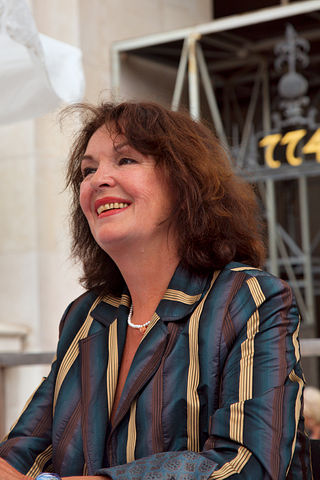
Elisabeth Trissenaar was an Austrian actress.
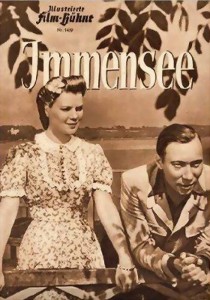
Immensee: ein deutsches Volkslied is a German film melodrama of the Nazi era, directed in 1943 by Veit Harlan and loosely based on the popular novella Immensee (1849) by Theodor Storm. It was a commercial success and, with its theme of a woman remaining faithful to her husband, was important in raising the morale of German forces; it remained popular after World War II.

The Black Spider is a novella by the Swiss writer Jeremias Gotthelf written in 1842. Set in an idyllic frame story, old legends are worked into a Christian-humanist allegory about ideas of good and evil. Though the novel is initially divided, what is originally the internal story later spills over into the frame story as well. The story is characterized by its complex narrative structure, its conservative Christian motifs and symbolism and its precise descriptions of the social dynamics of the village.
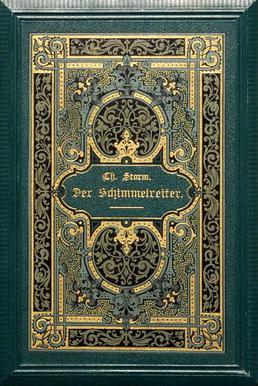
The Rider on the White Horse is a novella by German writer Theodor Storm. It is his last complete work, first published in 1888, the year of his death. The novella is Storm's best remembered and most widely read work, and considered by many to be his masterpiece.
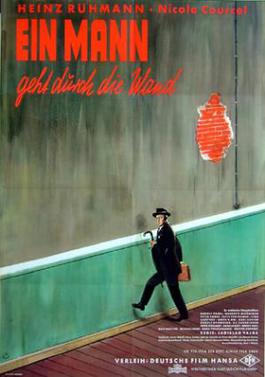
The Man Who Walked Through the Wall is a 1959 West German comedy film directed by Ladislao Vajda, starring Heinz Rühmann and Nicole Courcel. It was shot at the Bavaria Studios in Munich. The film is based on the 1941 novella The Man Who Walked Through Walls by Marcel Aymé. It tells the story of a man who discovers that he has the ability to walk through walls.
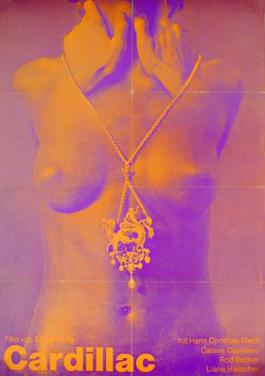
Cardillac is a 1969 West German drama film directed by Edgar Reitz, starring Hans-Christian Blech and Catana Cayetano. It tells the story of a goldsmith who is so obsessed with his own craft that he murders his customers. The film is a modern adaptation of E. T. A. Hoffmann's novella Mademoiselle de Scuderi.

Maria the Maid is a 1936 German drama film directed by Veit Harlan and starring Hilde Körber, Hilde Hildebrand, and Alfred Abel. It is based upon Die Kindsmagd, a novella by Walter Harlan. It was shot at the Johannisthal Studios in Berlin. The film's sets were designed by the art directors Erich Grave and Hans Minzloff.
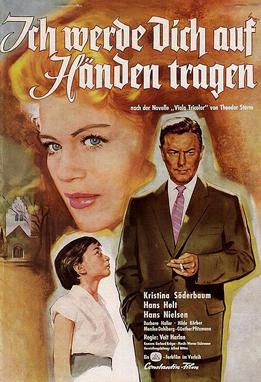
I'll Carry You in My Arms or I'll Carry You on My Hands is a 1958 West German drama film directed by Veit Harlan and starring Kristina Söderbaum, Hans Holt and Hans Nielsen. It was based on the novella Viola Tricolor by Theodor Storm, which had previously been made in 1937 as Serenade. It was the final film of Harlan's career.



















